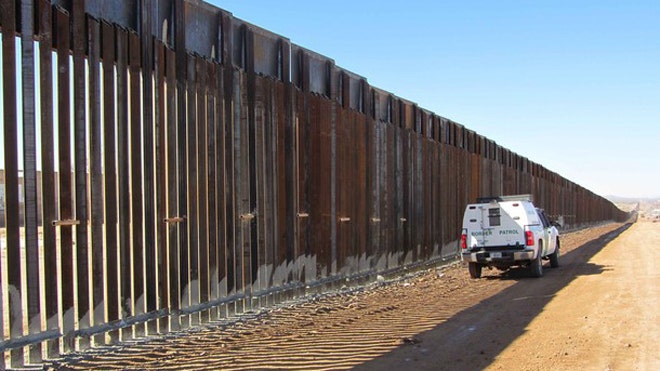Wednesday, July 11, 2012
Closure of Border Patrol stations triggers alarm
Fox News:
The Obama administration is moving to shut down nine Border Patrol stations across four states, triggering a backlash from local law enforcement, members of Congress and Border Patrol agents themselves.
Critics of the move warn the closures will undercut efforts to intercept drug and human traffickers in well-traveled corridors north of the U.S.-Mexico border. Though the affected stations are scattered throughout northern and central Texas, and three other states, the coverage areas still see plenty of illegal immigrant activity -- one soon-to-be-shuttered station in Amarillo, Texas, is right in the middle of the I-40 corridor; another in Riverside, Calif., is outside Los Angeles.
U.S. Customs and Border Protection says it's closing the stations in order to reassign agents to high-priority areas closer to the border.
"These deactivations are consistent with the strategic goal of securing America's borders, and our objective of increasing and sustaining the certainty of arrest of those trying to enter our country illegally," CBP spokesman Bill Brooks said in a statement. "By redeploying and reallocating resources at or near the border, CBP will maximize the effectiveness of its enforcement mandate and align our investments with our mission."
But at least one Border Patrol supervisor in Texas has called on local officers to "voice your concerns" to elected officials, warning that the "deactivation" will remove agents from the Texas Panhandle, among other places. Several members of Congress have asked Border Patrol Chief Michael Fisher to reconsider the plan. And local officials are getting worried about what will happen once the Border Patrol leaves town, since they rely on those federal officials to assist in making immigration arrests.
"It could impact us tremendously since we've only got two agents up here now for 26 counties," Potter County Sheriff Brian Thomas told FoxNews.com.
Potter County, in the Texas Panhandle, would be affected by the planned closure of the Amarillo station.
Thomas said that while his area is far from the border, it's still a major "corridor" for illegal immigrants -- and he said his office depends on Border Patrol to respond to their calls.
"I can't hold a carload of people out there on I-40 for eight hours while somebody comes from El Paso," he said. "I mean, that's just crazy."
Border Patrol's resident agent in charge in Amarillo expressed similar worries, in a recent memo to local law enforcement alerting them to the planned closure. The official, Robert Green, warned that the "entire complement" of two agents would be reassigned from Amarillo to somewhere closer to the border. He said "there is no active plan" right now for Immigration and Customs Enforcement to fill the void on assisting local officials with stops.
Empathizing with local officials, he wrote: "As a former deputy I found myself on the other end of the radio hoping to contact USBP to assist me with a vehicle full of undocumented foreign nationals on the side of the road."
And in an unusual plea, he urged the recipients of his memo to contact elected officials about the change. "I would encourage you, if you have found USBP assistance valuable in the past, to contact your political representatives and voice your concerns," Green wrote.
The letter was first posted online by the Lubbock Avalanche-Journal. Thomas confirmed to FoxNews.com that he received it. Bob Dane, communications director with the Federation for American Immigration Reform, also said he's confirmed the letter's authenticity with ICE.
CBP later acknowledged the memo, but said in its statement that Green was expressing his "personal opinion."
Lawmakers have started to get involved. Republican Rep. Mac Thornberry, who represents Amarillo, joined two other Texas lawmakers whose districts would be affected in asking the Border Patrol chief to "reconsider the proposal."
A letter sent Tuesday to Fisher warned the plan would "leave our area vulnerable." They noted that the Amarillo and Lubbock stations alone, two of those affected, accounted for 638 apprehensions of illegal immigrants just this year.
FAIR also blasted the Obama administration for the plans.
"It's part of the systematic dismantling of both border and interior enforcement," Dane told FoxNews.com. "It complements the non-enforcement policy of this administration."
He warned that local officials in those areas will have a hard time summoning far-away Border Patrol agents to assist, and said the tone of Green's memo was a "not-so-subtle shout-out" that the agency feels "outmanned, outgunned ... by their own government."
The stations set for closure in about six months include six in Texas. They are in: Lubbock, Amarillo, Dallas, San Angelo, Abilene and San Antonio. The other three are in Billings, Mont.; Twin Falls, Idaho; and Riverside, Calif.
Brooks said that the closures do not mean agents will be out of contact.
"Though Border Patrol agents would no longer be located in these areas, the Border Patrol intends to maintain strong and meaningful law enforcement partnerships with Immigration and Customs Enforcement and local law enforcement agencies in these areas through continuing to actively share intelligence and information" and other avenues, he said.
Detractors, though, say the changes are part of a pattern. The administration recently announced it would stop deporting young illegal immigrants who came to the U.S. as children and have not committed a serious crime. And after the Supreme Court upheld one plank of Arizona's controversial immigration enforcement law last month, federal officials said ICE would be selective in responding to calls about immigration status - prioritizing cases that meet certain criteria, like whether the suspect is wanted for a felony.
Rep. Randy Neugebauer, R-Texas, who signed the Thornberry letter, also voiced concern about the latest announcement on station closings in a written statement.
"The Department of Homeland Security hasn't demonstrated that sending additional resources to the border will be a more efficient use of resources than maintaining a presence further north," Neugebauer said. "I'd like to see numbers that reassure me that this strategy change won't ultimately result in fewer arrests."

No comments:
Post a Comment